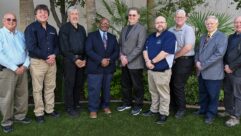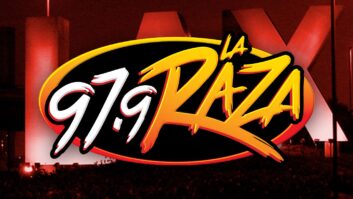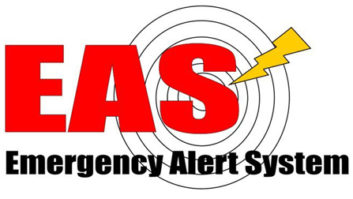Contest Rules Rewrite and EAS Issues
Dec 1, 2014 9:00 AM, By Lee Petro
FCC Dateline
Radio stations have used contests for many years to increase audience share and build loyalty among listeners. I have won a few contests over the years, including a pair of tennis shoes from an AOR station in Flint, Mich., many, many years ago.
Despite the benefits to the listeners, though, the broadcaster running the contest has had to jump through many administrative hoops to avoid an enforcement action by the FCC. Establishing clear rules for the selection of winners, making sure that the material rules were aired on a regular basis, and alerting listeners of changes in the rules have all served to trip up broadcasters. Forfeitures of $4,000 to more than $20,000 have been imposed on broadcasters who failed to follow the rules, both the FCC”s and, in many cases, their own contest rules. In the end, many broadcasters have found that it only takes one listener who didn”t get their free hat to file a complaint with the FCC and commence a costly enforcement proceeding.
With the shift to more original content being posted to stations” websites, a petition for rulemaking was filed in 2012 by Entercom Communications to permit the posting of contest rules on the Internet rather than being aired over the station. Entercom reasoned that listeners expect to find information on the Internet, and the posting of the rules would permit full disclosure to anyone who was interested. Since the current rules only require �material� terms to be aired on a periodic basis, possible disputes could be avoided by pointing all listeners to the station”s website, or some other portal with the contest rules information.
In November, the FCC released a Notice of Proposed Rulemaking, which seeks comment on the proposed changes in the contest rules. The proposed rules would require the posting of contest rules on a station”s website, the licensee”s website or another publicly accessible website. Further, the proposed rules would require broadcasters to alert listeners of the availability of the contest rules each time that the contest was mentioned. If the contest rules were changed, the proposed rules then would require the broadcaster to update the online rules, and provide over-the-air alerts to the public of the revised rules.
The FCC also seeks comment on several other aspects of the proposed rules, including making it easy for the public to find the online version of the rules, how to highlight the �material terms,� and whether there are any other changes that should be made to the contest rules following from the proposed changes. The FCC also seeks comment on how long the rules should be posted on the website, i.e., until after the prizes are awarded, or sometime thereafter.
Each of the commissioners and Chairman Wheeler issued separate statements supporting the adoption of online-based contest rules. Comments will be due 60 days after publication in the Federal Register, with reply comments due 30 after the comments are filed.
EAS Alert � On Oct. 24, 2014, an unauthorized Emergency Alert System (EAS) message was transmitted by a syndicated radio broadcast system and disrupted viewing on AT&T”s U-Verse systems in Austin, Atlanta, Detroit and North Carolina. Viewers saw a banner notice indicated that the White House had issued an emergency action notification (EAN), and the viewers channels were redirected to local broadcast stations. Given the ongoing Ebola scare, the alerts caused a significant amount of confusion and concern.
However, despite the fact that the EAN claimed to originate from the White House, it actually originated from Nashville, where a syndicated radio show rebroadcasted the EAN signal from the nationwide test in 2011 during a discussion on a recent interruption of the 2014 World Series. The alert was picked up by other radio stations and U-Verse systems, and the EAN then cascaded across several states.
In light of the interconnected nature of the EAS system, with each station relying on others for the transmission of EAS messages, the FCC is seeking comment on the impact of such errors, and methods to minimize or eliminate the impact of erroneous EAN transmissions. The FCC is also seeking comment on the adoption of proposed best practices for EAS security presented by the FCC”s Communications Security, Reliability and Interoperability Council IV.
Comments on the EAS security issue are due on Dec. 5, 2014, and comments on the CSRIC best practices are due on Dec. 30, 2014.
FCC DEADLINES:
January 10, 2015 � Issues/Program Lists for Q4-2014 must be placed in stations” public inspection files.
February 2, 2015 � Webcasters must submit forms to SoundExchange.
Petro is of counsel at Drinker Biddle & Reath, LLP. Email: [email protected].










